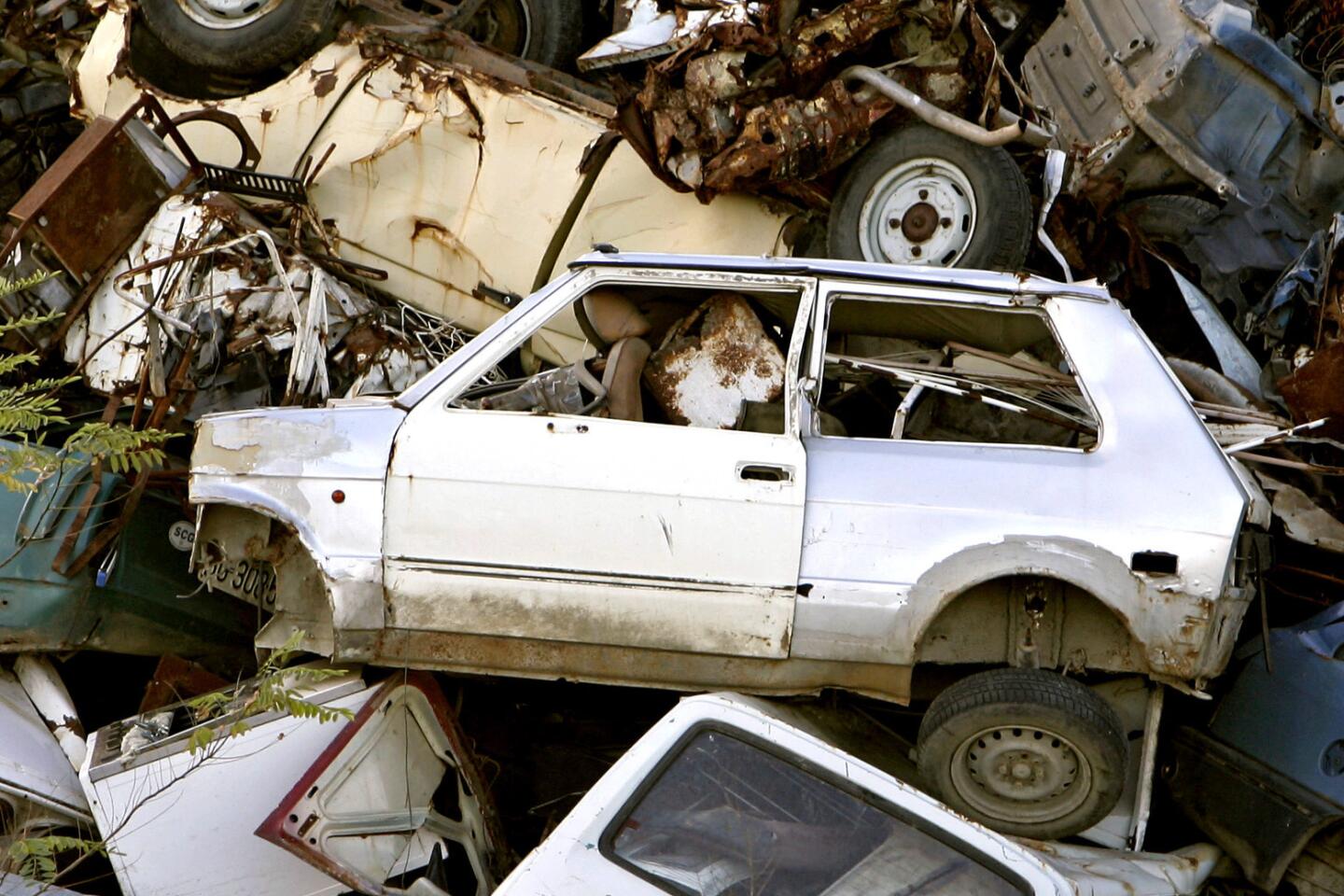Car reliability worsens in J.D. Power study after years of gains
After years of improving car reliability, automakers have taken a step backward while trying to exact better fuel economy out of engines and transmissions, according to the J.D. Power 2014 U.S. Vehicle Dependability Study issued Wednesday.
Owners of 3-year-old vehicles — from the 2011 model year — reported more problems than in the same study from the prior year, automotive research firm J.D. Power & Associates said.
It was the first increase in problems reported since 1998.
“While striving to reduce fuel consumption, automakers must be careful not to compromise quality,” said David Sargent, vice president of global automotive at J.D. Power. “Increases in such problems as engine hesitation, rough transmission shifts and lack of power indicate that this is a continuing challenge.”
Photos: Worst cars ever sold in America
Sargent said it could be the first sign of a trend toward poor reliability in cars. He said the firm’s research show several trouble spots.
“There is almost inevitably a trade-off between designing and programming a vehicle for fuel economy and how well it drives — and consumers want both,” Sargent said.
Moreover, J.D. Power has seen complaints about so-called infotainment systems in cars increasing as it surveys people who recently purchased new vehicles.
“If after three years of ownership drivers are still having trouble operating their navigation or entertainment systems they are going to report it,” he said.
The latest dependability results matched the experiences of Karl Brauer, an analyst at auto information company Kelley Blue Book who regularly tests cars.
“The automakers are working so hard now to get fuel economy out of these cars, adding technology to the four-cylinder engines and more gears to the transmissions, and there are more issues that need to be figured out,” Brauer said.
Cars typically came equipped with four-speed or six-speed automatic transmissions but now they are being offered with eight or nine speeds, he said.
“It is really hard to tune. You have all these gears in there and the transmission has to pick the right one for every situation, whether you are going up a hill or passing another vehicle,” Brauer said.
The more than 41,000 original owners of 2011 model-year vehicles reported an average of 133 problems per 100 vehicles, a 6% increase from the 126 problems reported in the previous study. Engine and transmission problems were responsible for almost all of the gain. Four-cylinder engines had more complaints than larger engines.
Still some manufacturers stood out for how few problems their cars experienced.
Lexus was the most reliable car brand for the third consecutive year. Vehicles produced by Toyota’s luxury brand had just 68 problems per 100 vehicles, almost half the average.
Mercedes-Benz ranked a distant second with 104 problems, followed by Cadillac (107), Acura (109) and Buick (112), respectively.
The worst brands were Mini, (185) followed by Dodge (181), Land Rover (179), Jeep (178), and Hyundai (169).
General Motors was the top domestic manufacturer. In addition to the high rankings of Cadillac and Buick, Chevrolet (132) and GMC (133) also performed average or better.
Ford ranked below average at 140 problems per 100 vehicles, while its Lincoln division did better at just 114, good for seventh place. All of the Chrysler brands scored well below average.
GM vehicles ranked at the top of eight automotive segments, more than any other automaker in 2014. Those vehicles include the Buick Lucerne — which has since been discontinued — Cadillac’s DTS and Escalade, Chevrolet’s Camaro and Volt, and GMC’s Sierra heavy-duty truck, Sierra light-duty pickup and GMC Yukon.
Toyota had seven awards, including the Lexus ES, GS, LS, RX; Toyota’s Camry and Toyota Sienna and the Scion xB. Honda was next with six vehicles at the top of a model segment including the Acura RDX and Honda CR-V, Crosstour, Element — also discontinued — Fit and Honda Ridgeline.
How well individual brands performed in the reliability statistics are important because they affect the way people shop for cars, Sargent said.
“We see that brands with lower dependability are likely to be shut out of a significant piece of the market,” Sargent said, “as many consumers will not even consider purchasing one of their vehicles because of concerns about its likely reliability.”
This was evident when J.D. Power matched its reliability ratings with the vehicle trade-in data it also collects. The results demonstrated that 56% of owners who reported no problems purchased the same brand when they went back into the car market. That dropped to 42% among owners who reported three or more problems.
“This is real money for the automakers,” Sargent said. “This is not intentions or theory. We are following what consumers purchased. The relationship is pretty profound.”
ALSO:
Toyota recalls 1.9 million Prius hybrids
Toyota may pay huge fine to settle criminal probe
Who buys Teslas? Prius owners and drivers of exotic cars
Follow me on Twitter (@LATimesJerry), Facebook and Google+.








